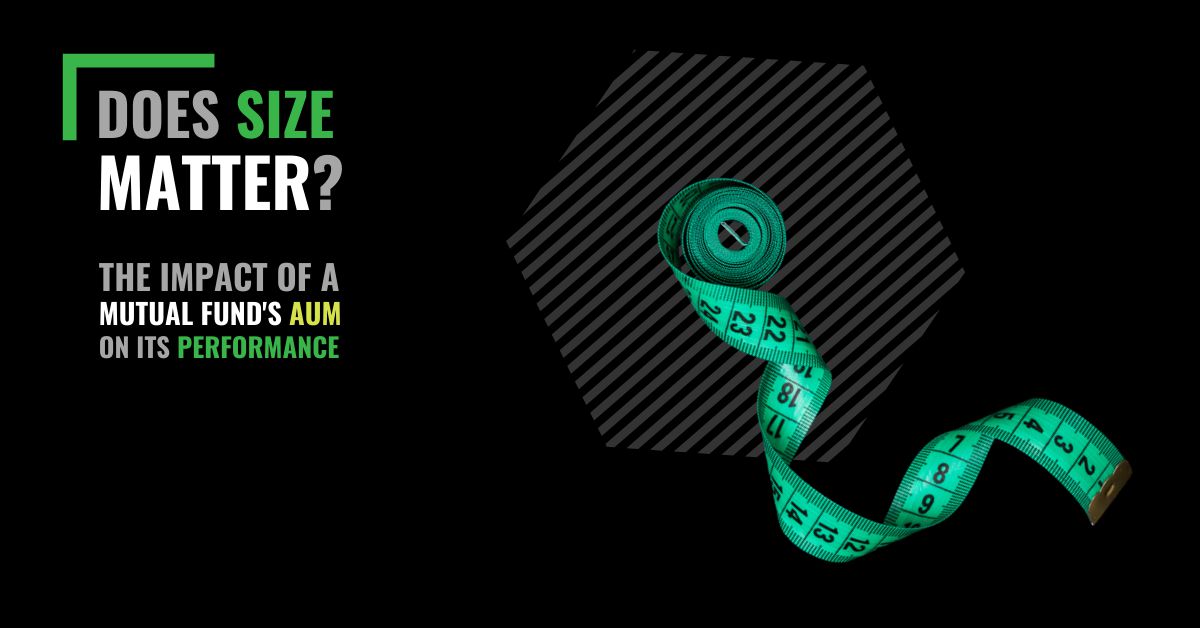Does the AUM or Fund Size Affect Mutual Fund Performance?

Last Updated : July 24, 2020, 8:44 p.m.
AUM or Assets Under Management is the amount of money that a mutual fund scheme holds and manages. This is also called fund size or asset size, it is a sum of money invested by an individual, corporate or any other entity in a fund. This AUM keeps on changing daily owing to two factors:
- Investments and Withdrawals – Based on the amount invested or withdrawn daily from a mutual fund scheme, the fund size or AUM keeps changing.
- Marked to Market – Every fund is marked to market, if it is an equity fund then the portfolio of that fund comprises stocks whose price changes daily. This means the portfolio is marked to market i.e benchmarked to market for changes. If the price of overall stocks in a portfolio or bonds in case of debt funds goes up, the AUM net off withdrawals will also increase.
Top Mutual Funds to Invest in Now
AUMs of different funds range between a low of 10 crores to a high of even 30,000 crores. AUM and fund size matter only in certain categories of funds. A fund with a large AUM signifies higher participation from investors and a fund with low AUM signifies lower interest in that fund. Though a fund with a large AUM might not be the best choice always, there could be funds with lower AUMs but with better track records and risk/return metrics. Let us look at different kinds of funds to understand the impact of fund size on mutual fund performance.
Equity Funds – In the case of equity funds, the fund size does not matter much except small-cap funds which we will discuss later. The Indian stock market is large enough for equity funds to have large-sized AUMs. Also, AUM or fund size should not be the criteria for investing or not investing in a certain fund. One should look at the past track record, expense ratio, fund manager pedigree, fund house credentials, risk & return metrics before making his/her mind for investment.
A fund with a large AUM does denote that it is popular but does not guarantee good future performance. On the other hand, you should not discard a fund with a small AUM just because its fund size is lesser. If it scores better on the other parameters, it is better to invest in that fund.
However, the significance of AUM or fund size matters slightly more in small-cap funds within equity funds. This is because small-cap funds invest in small-cap stocks which are smaller companies. These companies do have higher growth potential but being small there could be liquidity issues sometimes. Small-cap stocks are relatively illiquid as compared to mid and large-cap stocks. So, if there is a small-cap fund with an AUM of say 50-100 crores and if markets are falling, there could be an increase in redemptions leading to a run on the fund. In such a situation, the fund manager might not be able to liquidate his/her securities to pay investors for withdrawals. Such situations do not arise often, maybe once in a decade due to a sudden fall in markets, but you should be prepared. Therefore, it is recommended to invest in a small-cap fund that has a reasonable AUM say 500 crores and above.
Debt Funds – Fund size or AUM is more important in the case of a debt fund. If there is a debt fund with a large AUM, the advantages are that costs reduce since expense ratio is lower for large funds leading to higher returns. Also, large debt funds can negotiate better rates with borrowers since they are lending more money as compared to a smaller fund. The flip side though is that in case the debt market turns illiquid and there are higher withdrawals from that fund, then a large fund will find it difficult to liquidate since it holds higher amounts. This could lead to a restriction on redemptions in funds as has been seen in some debt funds lately. The ideal fund size is somewhat in between a small or a large fund.
Conclusion
AUM or fund size does not have a major impact on performance, other metrics such as portfolio quality, expense ratio, and risk/return metrics have a higher impact on performance. However, in the case of small-cap funds, fund size could matter in tough market conditions. In case of debt funds, fund size is critical and one should avoid investing in funds that are either very large or small.
